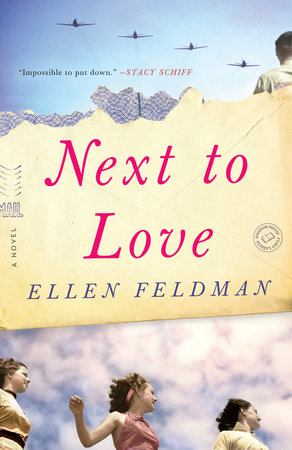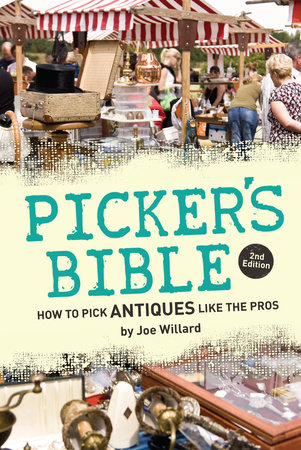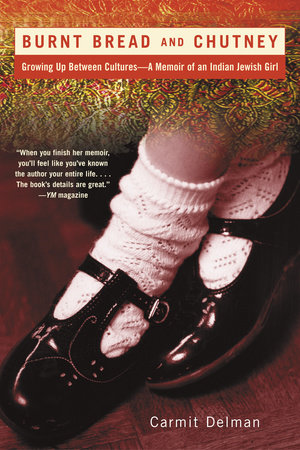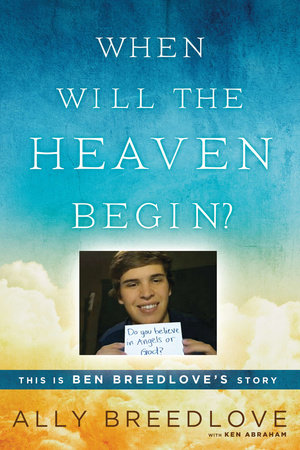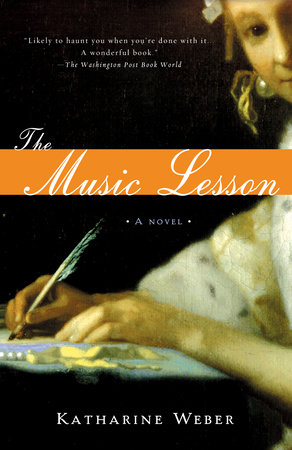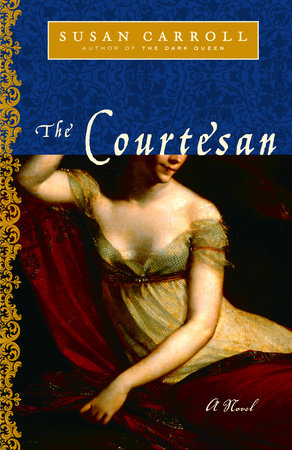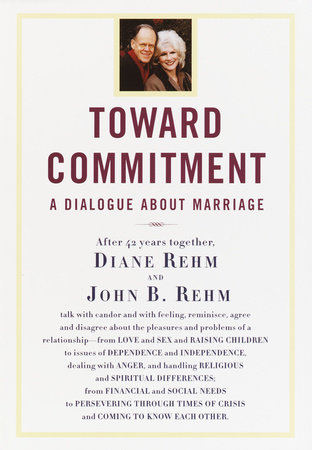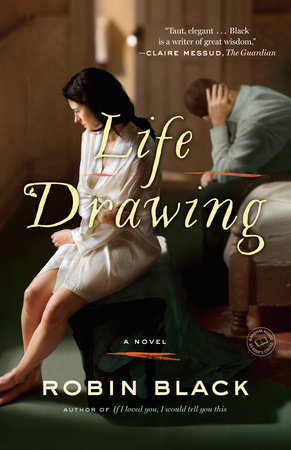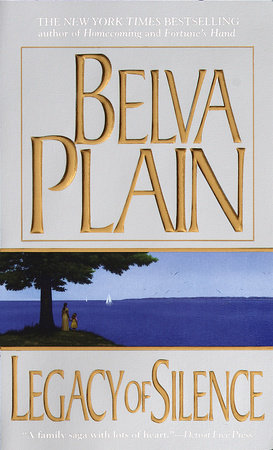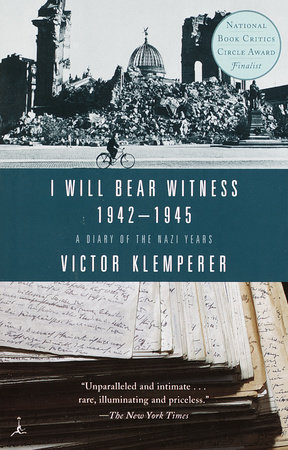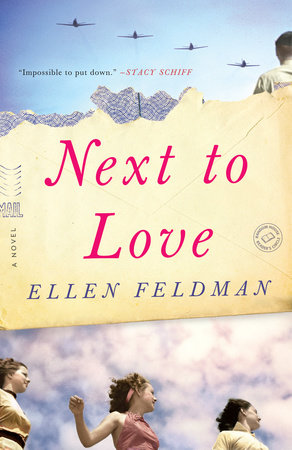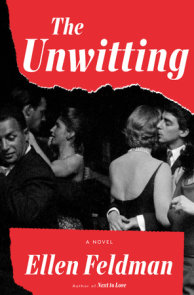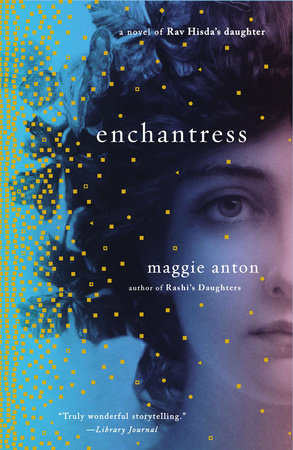Author Q&A
A Conversation with Ellen Feldman
Random House Reader’s Circle: Next to Love follows the lives of three young women—Babe, Grace, and Millie—during World War II and its aftermath. Though childhood friends, their friendship in its adult years is occasionally rocky. Do you think the recent spate of books and movies about women’s friendship romanticize the re- lationship as we used to romanticize men–women relationships?
Ellen Feldman: Women’s friendships can be rare and wonderful, deep with trust and buoyant with humor and support. Over the years I have found my own close ties to women to be rich and sus- taining. But I do think a distinction has to be made between valuing women’s friendships and idealizing them. Many recent books and movies tend to do the latter. When all else fails, they imply, we still have one another. An unfortunate corollary to this attitude is the idea that men are unreliable and likely to behave badly. I do believe there are distinctions between men and women, but I don’t think the fault line lies at friendship. I cherish my women friends, but I also have several men friends whom I treasure. The relationship is different but no less prized. I don’t believe either gender has the market cornered on loyalty, generosity, or kindness.
RHRC: In your acknowledgments you give partial credit for your inspiration to the Bedford Boys of Virginia. Who are the Bedford Boys?
EF: The Bedford Boys were a group of young men from the town of Bedford, Virginia (population 3200), who joined the National Guard before World War II. They went through training together, shipped out to England together in September 1942, and were among the first American G.I.’s who landed on Omaha Beach on D-Day, June 6, 1944. Nineteen of them died in the first minutes of the landing, twenty-two in the invasion. Six weeks later, on July
16, the Western Union teletype machine at Green’s Drug Store in Bedford began rattling out the messages from the War Department. It was said that no other community in America lost more of its young men in a single day. Revisionist history now suggests that the casualties came not from the town, but from the county of Bedford. Geography is beside the point. Whether to town or county, the loss was staggering, the ripples from it heartbreaking and enduring.
Though the Bedford Boys were part of the inspiration for Next to Love, I was careful not to research the lives of the actual young men from Bedford who served in World War II. I wanted to write a novel about love and loss, and the scars they leave rather than an account of those particular men and the loved ones they left behind.
RHRC : Next to Love is about women on the home front. How did the lives of the women left at home change during the war and after it?
EF: With sixteen million men off fighting the war, millions of women took what were then thought of as men’s jobs. When the men returned home, the women were expected to give up those jobs, but many of them had gotten used to making their own decisions and their own money, and were reluctant to go back to what was deemed their proper domestic role. Some industries that catered to women recognized the problem and came up with a solution. Dior’s New Look fired the first salvo. While the trousers and short skirts of war- time encouraged women to stride and reach, Dior’s designs were intended to keep them in place. Who could move in those tight bodices, cinched waists, and yards and yards of long, full skirts?
The recipes of the era also show a marked change after the war. During the war, women who were on an assembly line or in an office all day were still expected to get dinner on the table each evening. With that in mind, the March 1944 issue of Good Housekeeping fea- tured recipes illustrated with twin clocks showing start and finish times. After the war, the idea was to keep a woman in the kitchen for as long as possible. A 1950 dinner recipe in the same magazine begins preparations right after breakfast. Similarly, the dish that opens Babe’s eyes in the novel, which comes from an actual cook- book of the early postwar years, calls for thirty-two ingredients. But the female genii that had escaped from the bottle could not be forced back in. It is no accident that the feminist revolution of the seventies was made by the daughters of the women who went out to work in the forties.
RHRC: One aspect to Next to Love has special resonance with the Jewish community—more than half a million young Jewish men left home to serve in World War II. What affects and transfor- mations did the war have on individual American Jews and their communities?
EF: Those half million young Jewish men left largely ghettoized ex- istences to live among strangers of every religious and ethnic back- ground. Some of those strangers, who hailed from big cities, knew Jews—and hated them. Others from the countryside had never seen a Jew before—and still knew they hated them.
Many of the Jewish G.I.’s found themselves fighting battles in the barracks before they even reached the front. Often, they had to work harder to prove themselves. Some made friendships that broadened their horizons, and the nation’s. Others learned differ- ent lessons from the bigotry.
There were personal struggles as well. To eat ham for Uncle Sam, as the saying went, or to bypass it and go hungry after a day of grueling physical activity. To take off dog tags with the telltale H, for Hebrew, in case of capture by the Germans, or to leave them on in pride and in fear of dying anonymously.
The young men who went off to war as G.I. Jews came home as G.I. Joes. Never again would they settle for second-class citizen- ship in the country they had fought and lost buddies for. No longer would they put up with restricted neighborhoods and clubs, and college quotas, and signs that said no dogs or jews. They are the generation who helped shape the America we inhabit today.
RHRC: Did the war have a similar effect on African Americans?
EF: Hardship, danger, and proximity have a way of undermining bigotry. The problem for African Americans, however, was that they did not live cheek-by-jowl with their white counterparts. The armed services were not integrated until three years after the end of the war.
Many of the approximately one million blacks who served in the war believed that by proving their mettle in battle, they could win equality at home. It did not work out that way. For one thing, the government deemed blacks incompetent for fighting. Even those fifty thousand who did see combat returned home to the kind of racist treatment they had fought against overseas. As one soldier put it, “I killed—I repeat, killed—other men in the name of democracy. Could the joke have been on me for being naïve enough to believe my government?”
But the African Americans who returned home from serving their country, and often receiving better treatment abroad, were no longer willing to accept second-class citizenship. The injustice they suffered in the military, the hardship they endured, and the confi- dence and competence they achieved fanned the flame that would become the civil rights movement.
RHRC: Babe, Grace, Millie, and their men all suffer the scars of war, from the loss of loved ones to post-traumatic stress disorder. At the time, therapy and support groups were uncommon and silent suffering was viewed as virtuous. Our own era believes in openness as a cure, or at least as a form of solace. Do you think Babe, Grace, and Millie would have had an easier time if they had shared their problems and unhappiness?
EF: I thought about the question frequently as my characters endured pain and suffered its long-term scars silently. There is no doubt that friends and loved ones can offer support and sometimes even provide perspective. They can also confuse the issue, deliv- ering unwanted advice, projecting their own misfortunes, over- stepping boundaries. In one scene in the book, as Babe faces a crisis, she thinks about what Grace and Millie would tell her to do. But she knows that their solutions do not apply to her marriage. That said, there is no doubt that professional treatment and sup- port groups can help those suffering from post-traumatic stress dis- order and other battle-related conditions.
Questions for Discussion
1. For nine years, Babe keeps a terrible secret. How much of a toll do you think it takes on her? Does her hardscrabble background make her tougher than Grace and Millie in the face of adversity?
2. In the post WWII era, combat fatigue, or what we now call post-traumatic stress disorder, was a dark secret. There was little therapy, and no support groups existed. Do you think in that era Babe could have found better ways to cope with Claude’s prob- lems? Should she have insisted they have a child? How much do you think she regrets not having one? Would you have blamed her if she left him?
3. Grace and Millie have diametrically opposite reactions to losing their husbands, and both think they are trying to protect their children. Do you think they really believe that or are they merely justifying their own predilections? What effect does Grace’s
behavior have on her daughter, Amy? What does Millie’s have on her son, Jack?
4. Is Grace really so devoted to Charlie’s memory or does her grief allow her to avoid confronting new realities? What does her breakdown in the front yard say about her feelings toward her late husband and herself ?
5. Is Millie callous or a fierce survivor? Do you see her as a manip- ulative wife and mother or as a woman trying to protect her family?
6. In an era that regarded misfortune as something to be ashamed of and silent suffering as a virtue, all three women keep secrets from husbands, children, and one another. Our own era be- lieves in openness as a cure, or at least as a form of solace. Do you think Babe, Grace, and Millie would have had an easier time of it if they had shared their problems and unhappiness?
7. Grace’s father-in-law, King, often behaves badly, resenting and punishing vets who return from the war. Can you sympathize with his heartbreak and loss nonetheless? How much is the sexual advice he gives Grace a reflection of the mores and beliefs of the era, and how much is simply a reflection of his character?
8. The psychiatrist tells Grace that the solution to her problem is a husband. Were you surprised at how narrow-minded America was at the time or do you think that in many ways—race, religion, gender, sex—we have not changed as much as we think?
9. How do you interpret the triangle of Grace, Mac, and Morris? Do you think they would behave differently today? What would you have done in Grace’s place after marrying Morris?
10. Babe was a poor girl who married into the middle class. Both of Grace’s husbands had plenty of money. After the war, Millie’s husband, Al, makes a small fortune. To what extent are the wom- en’s lives changed by their new economic statuses, and in what ways do all three remain similar? What do you think this says about the beginning of the most prosperous period in America’s history and about our own era?
